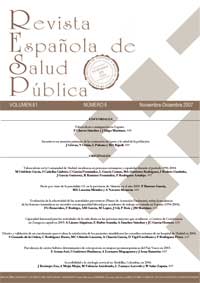Access to Cervical Cytology in Medellín, Colombia during 2006
Abstract
Background: The burden of illness of cervical cancer has not decreased enough in developing countries. For that reason is important to improve coverage, access and effectiveness of cervical cancer screening programs. The objective of this paper is to analyze women s access to the cervical cytology programme of the Secretary of Health of Medellín (Colombia). Methods: An analysis was made of 1.519 records of women from a cross-sectional study conducted in an urban area of Medellín (Colombia). Descriptive analysis was conducted and a Logit model was estimated for analysing recent cervical cytology (cytology performed less than 36 months prior to the survey). Results: 68,7% of women had a recent cytology, 17,2% did not have recent cytology and 14,2% of women attended for the first time to the service. The probability of having a recent cytology increased with age, women with family history of cervical cancer, women with personal history of sexually transmitted infections, women with some education and women who are (or were) married or in a stable union. Conclusions: The demand for cytology appears to be concentrated; a limited number of women assist frequently while others dont practice it or stop assisting.Downloads
Published
2008-03-13
Issue
Section
ORIGINALS

